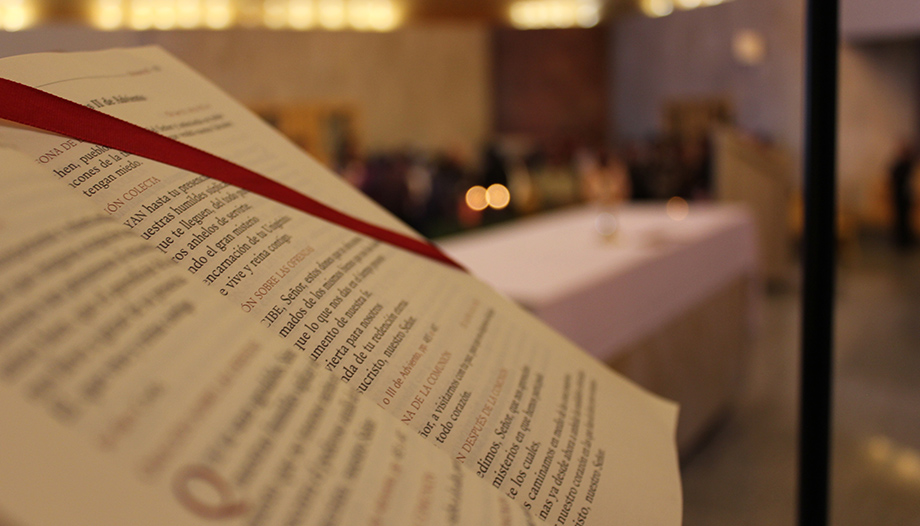Today’s first reading calls on the people to share in God’s own holiness: "Be ye holy, for I, the Lord your God, am holy." And what does this holiness consist in? Not in displays of power, nor in sublime wisdom; not even in miracles. It consists in the firm rejection of resentment while also making any necessary reprimands. No grudges but open correction Essentially, holiness is love of others: “You must love your neighbour as yourself. I am the Lord.” And God himself, in his inner life, is love.
I wrote last week that "the Old Law focused more on social morality – at least as it came to be understood’." It actually also spoke of inner attitudes but all too often ancient Israel limited righteousness to outward observance. Jesus merely insisted that holiness involved interior transformation and raised the bar to an even higher level. And we see this particularly in the two antitheses we read today, which are the last two of the six famous antitheses he gave in the Sermon on the Mount.
Our Lord refers to a command given by God on Mount Sinai: "an eye for an eye, a tooth for a tooth". If we consider this brutal today, it is because we are seeing it with Christian eyes. In its time it was a step forward, introducing a basic sense of justice: a crime must be paid for by a proportionate punishment, not violent revenge. But Jesus, without repealing this command justice is still required), adds the new dimension of Christian meekness. Evil is overcome through a response of meek generosity more than through equivalent retribution. "But I say unto you..."Don’t resist evil; turn the other cheek; if they take your coat, give your cloak too; give to one who begs and borrow to one who asks. In other words, evil is smothered when suffered with generous meekness – as we see Our Lord doing on the Cross.
And the final antithesis is the most demanding and God-like of all. "You have heard that it was said, 'You shall love your neighbor and hate your enemy.'But where does God say ‘hate your enemy’? He actually doesn’t. ‘It was said’ by Jewish tradition, not written in divine Scripture. It was a good example of how God’s law had been diluted, even corrupted, over time. And so Jesus, while confirming and elevating what was true in Israel’s law, corrects what was false.
He then calls on us to "love your enemies and pray for those who persecute you.", just as God the Father blesses all, evil and good, with rain. There is no merit in loving only those who love us: even pagans and the hated tax-collectors do that. But in order to share in God’s holiness, we must love all without distinction. "Be ye therefore perfect, even as your heavenly Father is perfect." And so once again we see, holiness – perfection – is love.
Homily on the readings of Sunday 7th Sunday in Ordinary Time (A)
The priest Luis Herrera Campo offers its nanomiliaA short one-minute reflection for this Sunday's readings.









